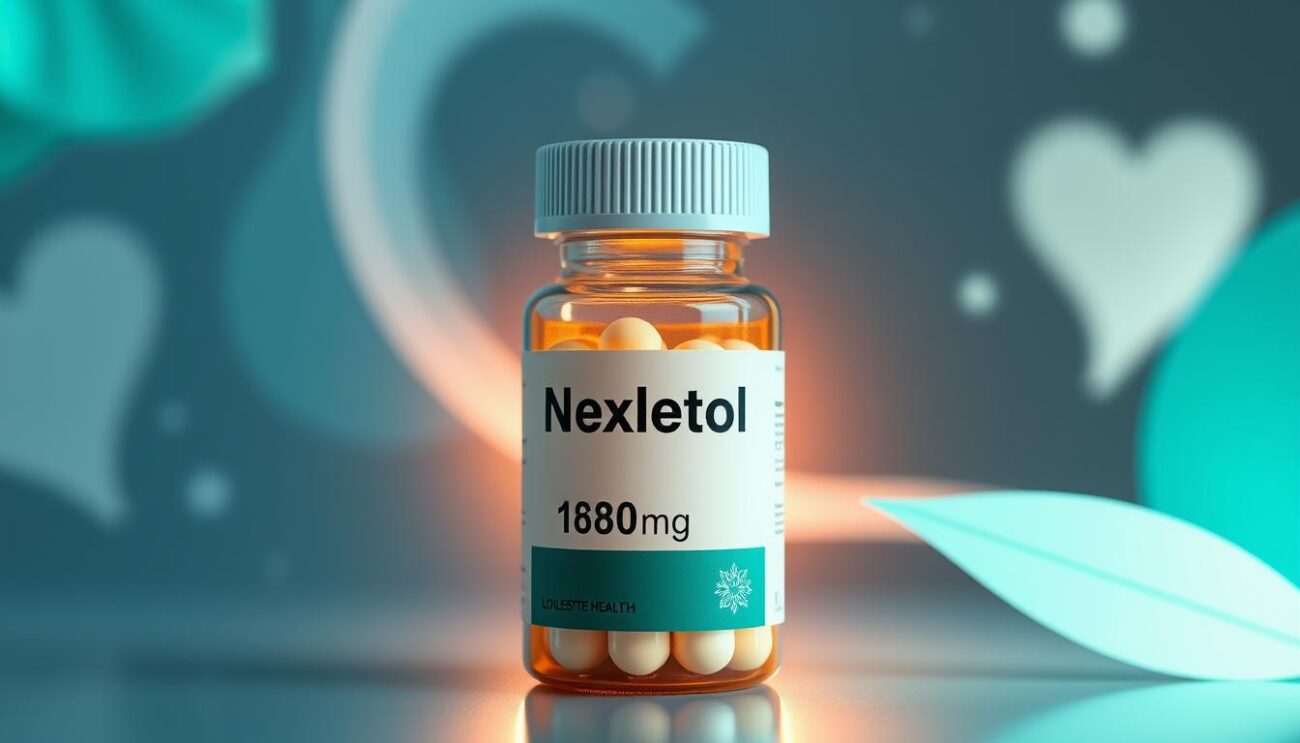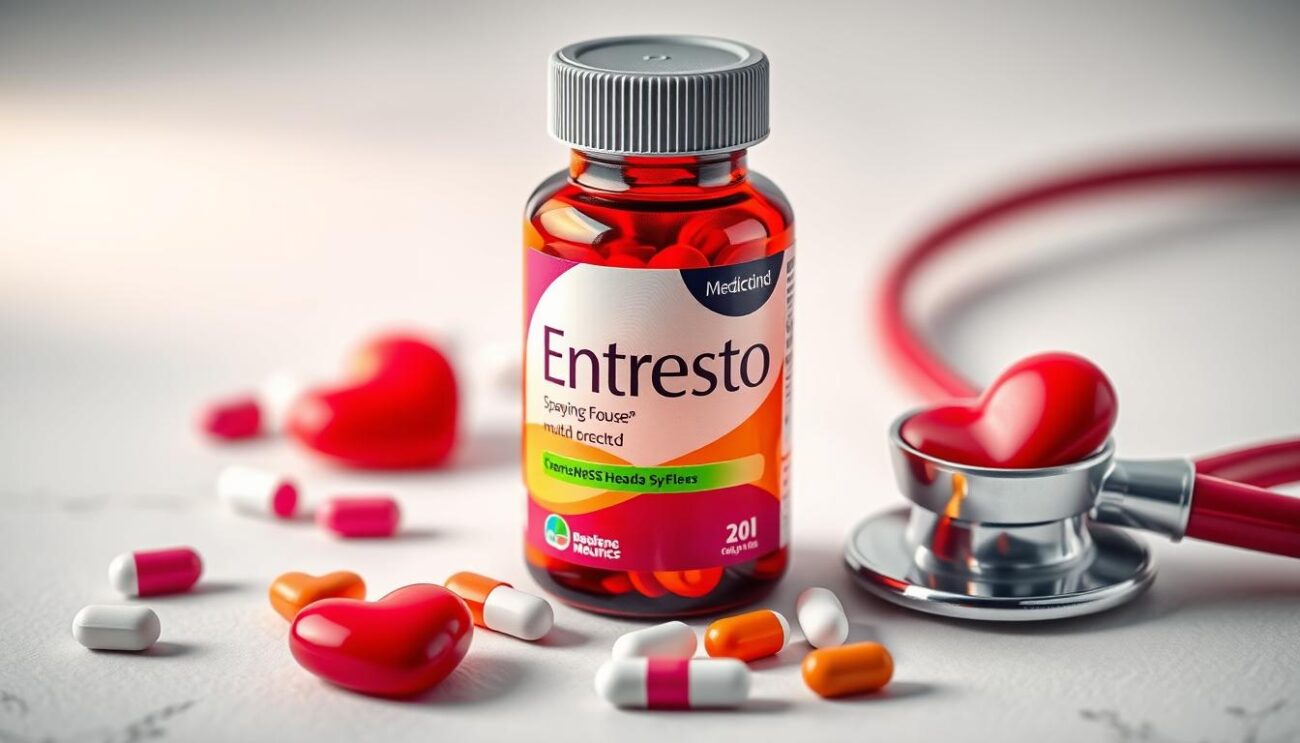Do you know how important regular cholesterol checks are for your heart health? Many see cholesterol as just a number. But, knowing and controlling your cholesterol levels can be life-saving. This article will explain why regular cholesterol screenings are key. We’ll also cover how to manage your cholesterol to lower heart disease and stroke risks.
Key Takeaways
- Regular cholesterol checks are crucial for monitoring and managing cholesterol levels to maintain overall cardiovascular health.
- Cholesterol tests can detect high levels of LDL (bad) cholesterol and low levels of HDL (good) cholesterol, which can lead to the buildup of plaque in the arteries.
- Screening guidelines recommend starting cholesterol tests as early as 9-11 years old and continuing at regular intervals throughout life.
- Maintaining healthy cholesterol levels through diet, exercise, and medications can significantly reduce the risk of heart disease and stroke.
- Collaborating with healthcare providers is essential for developing an effective cholesterol management plan.
Understanding Cholesterol and Its Role
Cholesterol is a waxy, fat-like substance important for hormone production and digestion. But, too much of it, especially the “bad” LDL cholesterol, can harm your heart. It can cause plaque buildup in arteries, raising the risk of heart disease and stroke.
What is Cholesterol?
Cholesterol levels are measured in milligrams per deciliter of blood (mg/dL). Doctors use a blood test to check LDL, HDL, and triglycerides. Normal levels vary by age, ethnicity, and sex, with LDL below 70 mg/dL being best for those at risk.
Types of Cholesterol: LDL, HDL, and Triglycerides
There are three main types of cholesterol:
- LDL (low-density lipoprotein), or “bad” cholesterol, can contribute to the formation of plaque in the arteries.
- HDL (high-density lipoprotein), or “good” cholesterol, helps remove excess cholesterol from the body.
- Triglycerides are another type of fat in the blood that can also contribute to the development of heart disease.
High cholesterol is when total levels are 200 mg/dL or higher. Lower LDL levels are better, and higher HDL levels are good. Cholesterol numbers, especially LDL, are key in assessing heart disease risk and prevention.
Knowing about the different types of cholesterol is vital for health. Regular checks can spot imbalances and guide how to manage cholesterol levels.
The Importance of Regular Cholesterol Checks
Good heart health is key, and regular cholesterol tests are essential. They show how likely you are to get heart disease, the top killer in the US. By keeping an eye on your cholesterol, you can prevent serious heart problems.
Recent data shows 86.4 million US adults have high or borderline high cholesterol. Also, 1 in 5 teens had unhealthy cholesterol levels from 2009 to 2016. This highlights the need for regular checks to catch issues early.
Cholesterol tests measure LDL (bad), HDL (good), triglycerides, and total cholesterol. Doctors use these numbers with other info to figure out your heart risk. This helps create a plan just for you to stay healthy.
Most adults should get a cholesterol test every 4 to 6 years. But, those with heart disease, diabetes, or high cholesterol in their family should get tested more often. By monitoring your cholesterol, you can work with your doctor to keep your heart healthy and lower your risk of heart disease and stroke.
| Cholesterol Test Measure | Desirable Level | Borderline High | High |
|---|---|---|---|
| Total Cholesterol | Less than 200 mg/dL | 200-239 mg/dL | 240 mg/dL and above |
| LDL (Bad) Cholesterol | Less than 100 mg/dL | 130-159 mg/dL | 160 mg/dL and above |
| HDL (Good) Cholesterol | 60 mg/dL and above | 40-59 mg/dL | Less than 40 mg/dL |
| Triglycerides | Less than 150 mg/dL | 150-199 mg/dL | 200 mg/dL and above |
Knowing your cholesterol levels and cardiovascular risk assessment helps you make smart health choices. Regular tests are key to keeping your heart healthy. They let you take charge of your health and lower your risk of heart problems.
Recommended Cholesterol Screening Guidelines
Keeping your cholesterol levels healthy is key for your heart. The guidelines say men should get their first test by 35, and women by 45. But, if you have a family history of heart disease or high cholesterol, you might need to test earlier.
When to Get Your First Cholesterol Test
The American Heart Association advises men to get tested at 35 and women at 45. These ages help catch and manage cholesterol problems early.
Follow-up Testing Frequency
- After your first test, how often you need to test depends on your age and risk factors.
- People with normal levels should test every 5 years.
- If your levels are high or you have heart disease risk, you might need to test more often.
Getting regular cholesterol screenings is vital for heart health. It helps track any changes in your cholesterol test frequency. By following these guidelines, you can manage your cholesterol and lower your heart disease risk.
Interpreting Cholesterol Test Results
Cholesterol test results give us important information about our cholesterol levels. This includes total cholesterol, LDL (bad) cholesterol, HDL (good) cholesterol, and triglycerides. Knowing these numbers helps us keep our heart healthy and manage our cholesterol effectively.
Desirable Cholesterol Levels
The ideal cholesterol levels for most adults are:
- Total cholesterol: Less than 200 mg/dL
- LDL cholesterol: Less than 130 mg/dL
- HDL cholesterol: Greater than 40 mg/dL for men and 50 mg/dL for women
- Triglycerides: Less than 150 mg/dL
If your levels are not in these ranges, it might mean you’re at higher risk for heart disease. Your doctor will need to keep a closer eye on you or suggest changes.
| Cholesterol Parameter | Desirable Levels |
|---|---|
| Total Cholesterol | Less than 200 mg/dL |
| LDL Cholesterol | Less than 130 mg/dL |
| HDL Cholesterol | Greater than 40 mg/dL for men, greater than 50 mg/dL for women |
| Triglycerides | Less than 150 mg/dL |
It’s important to keep an eye on your cholesterol test results. Staying within desirable cholesterol levels helps you and your doctor track your heart health. This way, you can make the right choices to keep your heart strong.
Risk Factors for High Cholesterol
Many things can affect your cholesterol levels. Some you can change, and some you can’t. Knowing about these factors is key to keeping your cholesterol in check and avoiding heart disease.
Modifiable Risk Factors
Some lifestyle choices and health issues can raise your cholesterol. These are things you can change. Here are a few examples:
- Diet: Eating too much saturated and trans fats can raise your cholesterol.
- Weight: Being overweight or obese, with a BMI over 30, increases your risk of high cholesterol.
- Physical activity: Not exercising regularly can lead to weight gain and higher cholesterol.
- Smoking: Smoking lowers HDL (good) cholesterol and is linked to high cholesterol.
- Health conditions: Certain health issues, like type 2 diabetes and obesity, can also raise your cholesterol.
Non-modifiable Risk Factors
There are also things you can’t change. These are non-modifiable risk factors. Here are a few:
- Age: Cholesterol levels often go up with age, especially after 40.
- Gender: Men are more likely to have high cholesterol than women before menopause.
- Family history: Your genes and family history can also affect your cholesterol levels, making you more likely to have high cholesterol.
Knowing about these risk factors helps you take steps to manage your cholesterol. Regular screenings, lifestyle changes, and sometimes medication can help. This approach can keep your heart healthy.
Importance of Regular Cholesterol Checks
Keeping your cholesterol levels healthy is key for your heart. Regular checks help you watch your levels and take steps to keep them in check. This can lower your risk of heart disease, strokes, and other serious heart problems.
By getting regular cholesterol tests, you can spot problems early. Then, you can work with your doctor to prevent and manage them. This might mean changing your diet, exercising more, or taking medication.
Cholesterol levels can change, so it’s vital to keep an eye on them. This lets your doctor adjust your treatment plan if needed. Keeping your cholesterol in check helps keep your heart healthy and lowers your risk of heart disease.
“Regular cholesterol checks are essential for protecting your heart and overall health. Don’t wait until it’s too late – take charge of your cholesterol today.”
It’s also important to know about the different types of cholesterol. LDL, or “bad” cholesterol, can clog your arteries and increase heart disease risk. HDL, or “good” cholesterol, helps remove excess cholesterol and lowers your risk.
By keeping LDL and HDL cholesterol in balance, you can protect your heart. Regular checks are the first step to achieving this balance and ensuring your long-term health.

Cholesterol Management Strategies
Keeping cholesterol levels healthy is key for heart health. A good plan often needs lifestyle changes and, sometimes, cholesterol-lowering meds from doctors.
Lifestyle Changes for Lowering Cholesterol
Changing your lifestyle can really help with cholesterol. Here are some good ways:
- Eat a diet rich in fruits, veggies, whole grains, and lean proteins. Avoid saturated and trans fats. Learn about cholesterol-lowering foods.
- Stay active with regular exercise. It helps keep your weight healthy and your heart strong.
- Stop smoking. It’s a big risk for high cholesterol and heart disease. Quitting helps your heart and blood pressure right away.
- Drink alcohol in moderation. It can help raise your HDL (“good”) cholesterol.
Cholesterol-lowering Medications
Doctors might suggest cholesterol meds like statins for high cholesterol. These meds stop the liver from making cholesterol or block its absorption from food.
| Medication Type | Examples | Primary Function |
|---|---|---|
| Statins | Atorvastatin, Simvastatin, Rosuvastatin | Inhibit cholesterol production in the liver |
| Bile Acid Sequestrants | Cholestyramine, Colestipol, Colesevelam | Block the absorption of cholesterol from the diet |
| PCSK9 Inhibitors | Evolocumab, Alirocumab | Reduce the amount of LDL cholesterol in the blood |
Combining lifestyle changes with cholesterol meds can manage cholesterol well. This approach lowers heart disease risk.
Cardiovascular Disease Prevention
Regular cholesterol checks and effective cholesterol management are key to avoiding cardiovascular disease. By keeping an eye on cholesterol levels and acting quickly, people can lower their heart disease risk. This includes strokes and other heart problems.
Keeping cholesterol levels healthy through lifestyle changes and, if needed, medicine helps the heart. It also improves overall cardiovascular health. Regular blood pressure screenings, diabetes testing, and weight management are vital for heart health and disease prevention.
Getting enough sleep, managing stress, and staying active also help prevent cardiovascular disease. Quitting smoking and drinking less alcohol are important steps to avoid heart disease and strokes.
By focusing on cholesterol management and cardiovascular health, people can greatly reduce their risk of heart disease and other serious conditions. Regular health check-ups and a healthy lifestyle are essential for cardiovascular disease prevention.
“Up to 80% of heart attacks and strokes are preventable.”
– World Health Organization
Family History and Genetic Factors
Your family history and genetics can affect your cholesterol levels and heart disease risk. If a relative has high cholesterol or heart disease, you might face similar risks. This is because your genes can influence how your body handles cholesterol.
Genetic testing can find the cause of familial hypercholesterolemia (FH) in 60% to 80% of cases. Yet, about 20% to 40% of people with FH test negative. Some genetic causes of FH are still unknown.
If your family has a known FH-causing gene, it’s key for family members to get tested. Family members should not test for a Variant of Uncertain Significance (VUS) until it’s confirmed to cause FH.
Knowing your family history and genetics helps you and your doctor create a plan to manage your cholesterol risk. This might include more frequent tests, early interventions, and specific treatments. These steps can help reduce the effects of your genetic predisposition to high cholesterol.
| Genetic Factors and FH | Percentage |
|---|---|
| Genetic testing finds the genetic change causing FH | 60% to 80% |
| People with FH who have negative genetic testing results | 20% to 40% |
| Chance of passing on FH to children if inherited from one parent | 50% |
| Children of parents with FH from both sides will invariably have the condition | 100% |
It’s vital to address your family’s cholesterol history and genetics for your heart health. By teaming up with your doctor, you can create a plan. This plan will help you monitor your cholesterol, make lifestyle changes, and explore treatments to lower your risks.
Monitoring Cholesterol Levels Over Time
Keeping your cholesterol levels in check is key for heart health. Regular checks help you and your doctor see any changes. This way, you can make smart choices to keep your cholesterol in balance.
By monitoring their cholesterol, people can spot trends and changes. They can then work with their doctors to adjust their lifestyle or medication. This helps keep their cholesterol levels right and lowers heart disease risk.
The National Heart, Lung, and Blood Institute says to start testing between ages 9 and 11. Then, test every five years. As you get older, you might need to get tested more often, especially if you’re at risk for heart disease.
- Men should get tested every one to two years starting at 45.
- Women should start testing once or twice a year at 55.
- After 65, test your cholesterol every year.
Cholesterol tests can cost between $50 to $200. But, things like not fasting right, certain meds, and mistakes can mess up the results. So, it’s vital to keep getting tested and talk to your doctor about it.
“Regular cholesterol checks are crucial for maintaining heart health and managing long-term cholesterol levels effectively.”
By monitoring cholesterol levels regularly and teaming up with your doctor, you can manage your cholesterol. This helps lower your risk of heart disease.
Collaboration with Healthcare Providers
Managing cholesterol well needs teamwork with healthcare providers. Regular visits, talking openly, and understanding the value of cholesterol monitoring are key. Doctors can explain test results, spot risks, and create a plan to control cholesterol. This teamwork helps keep cholesterol in check and protects heart health.
A 2022 study in the Journal of the American College of Cardiology showed 79% of patients with atherosclerosis in the U.S. were on high-intensity statins. This shows how crucial preventive care and managing cholesterol are.
When managing cholesterol, personal factors like family history and genetics matter too. A 2017 study in Atherosclerosis pointed out health gaps in patients with familial hypercholesterolemia. This highlights the need for care tailored to each person.
| Key Cholesterol Management Strategies | Description |
|---|---|
| Regular Cholesterol Checks | Healthcare providers can help decide how often to test cholesterol based on risk. |
| Lifestyle Modifications | Doctors can advise on diet, exercise, and lifestyle changes to manage cholesterol. |
| Medication Management | Healthcare providers can prescribe and check if cholesterol-lowering meds, like statins, work. |
By teaming up with healthcare providers, people can actively manage their cholesterol and care for their heart. This approach boosts overall heart health.
Conclusion
Regular cholesterol checks are key to keeping your heart healthy. They help prevent heart disease, strokes, and other serious issues. Knowing about cholesterol, screening guidelines, and risk factors helps you stay on top of your health.
By making lifestyle changes and, if needed, taking medications, you can manage your cholesterol. Working with your doctor is crucial to keep your cholesterol levels healthy. This reduces your risk of heart disease.
Staying consistent with cholesterol checks and teaming up with your doctor is vital. With the right knowledge and commitment, you can control your heart health. This reduces the risk of serious heart problems.
Keeping your cholesterol levels healthy is essential for your overall well-being. Regular monitoring is the way to achieve this. By focusing on your cholesterol health, you’re taking a big step towards a better life.





